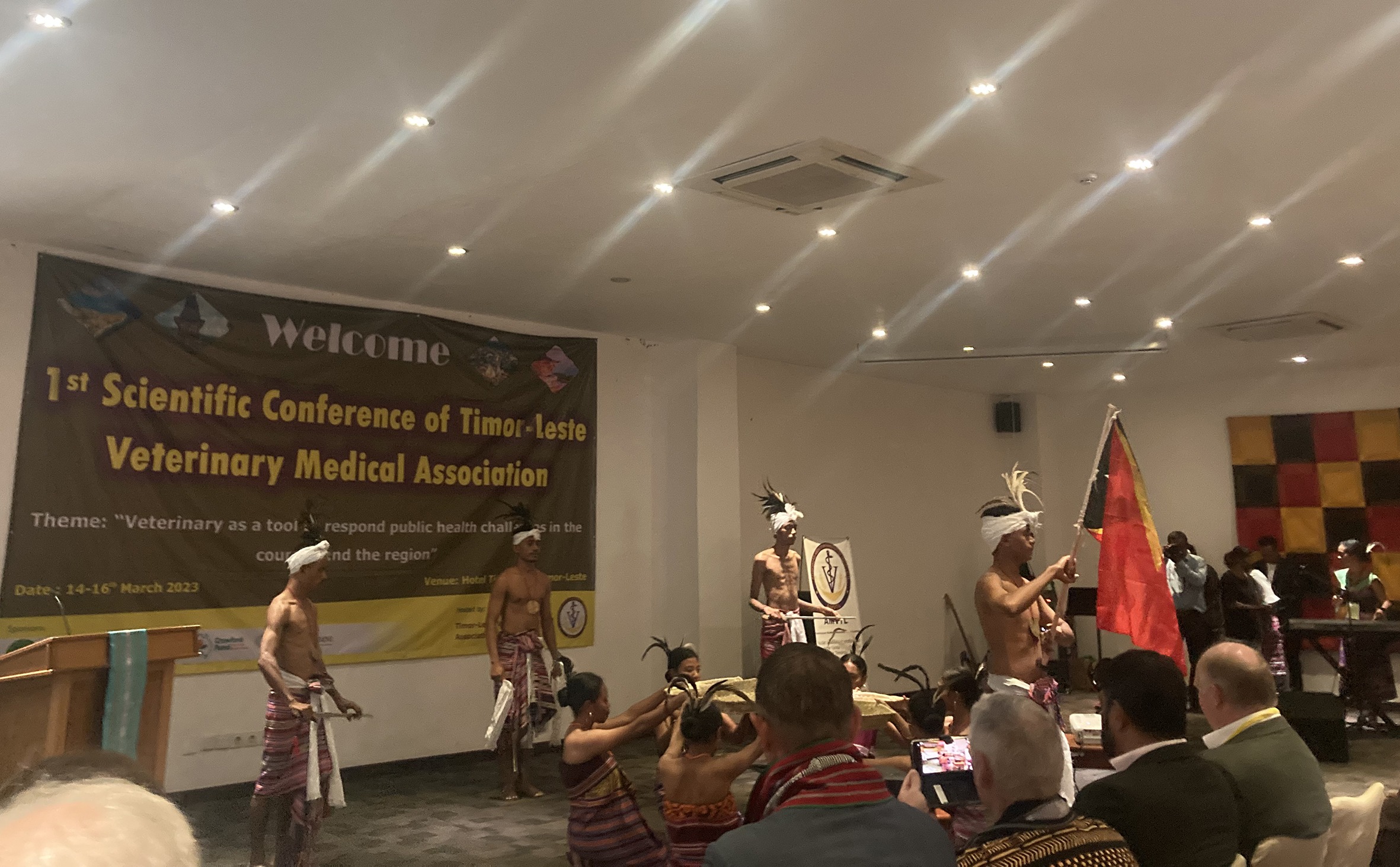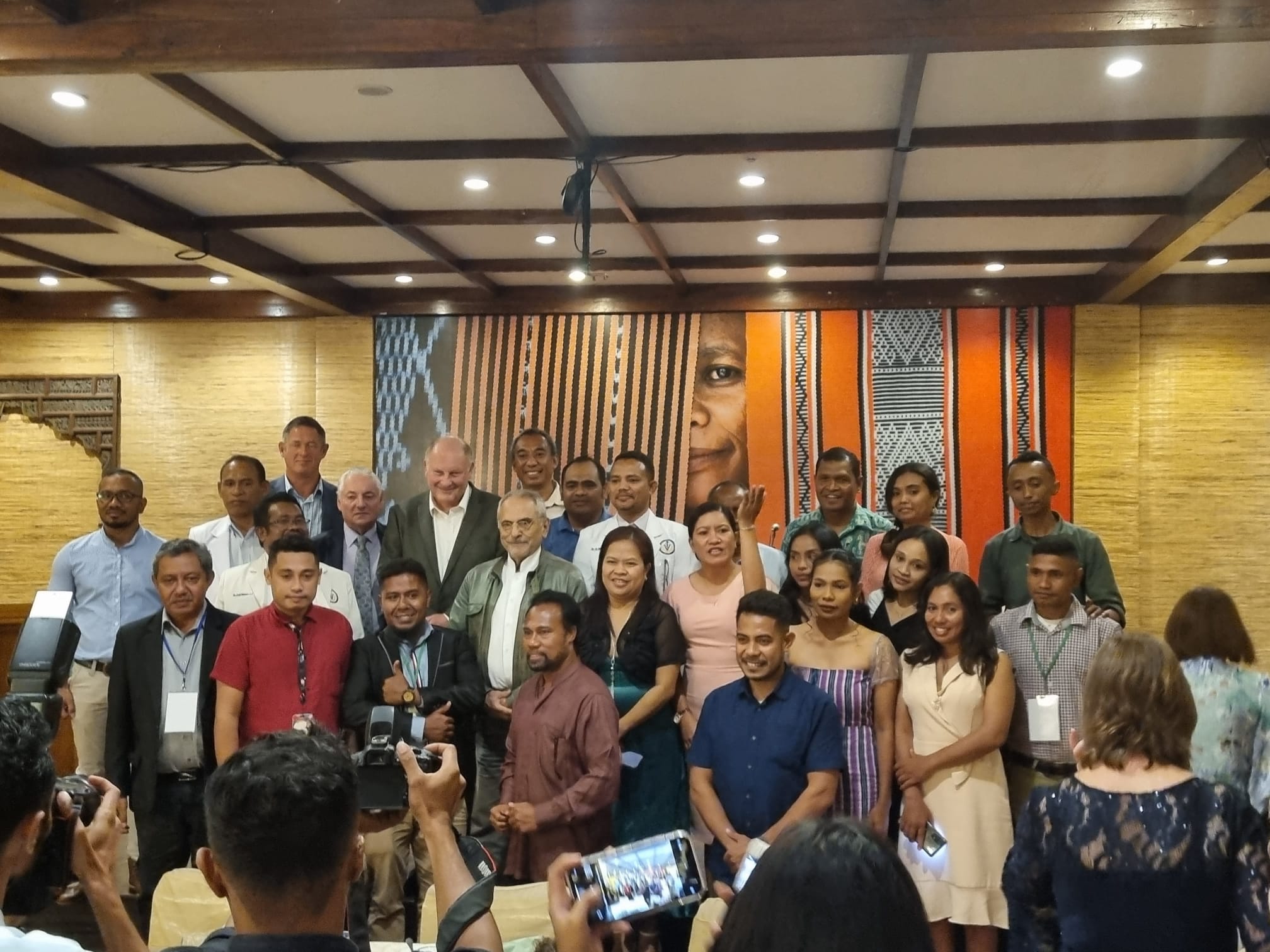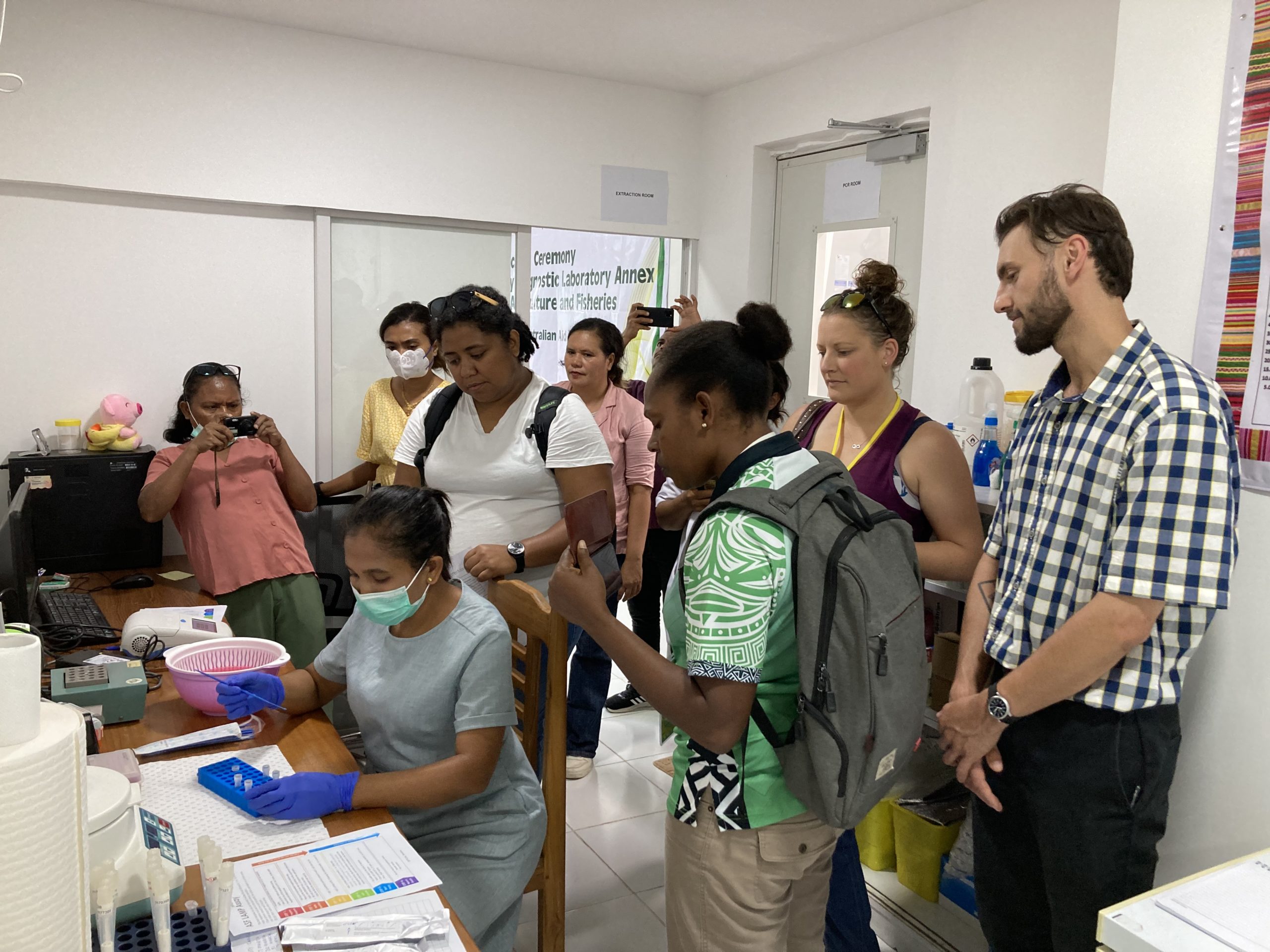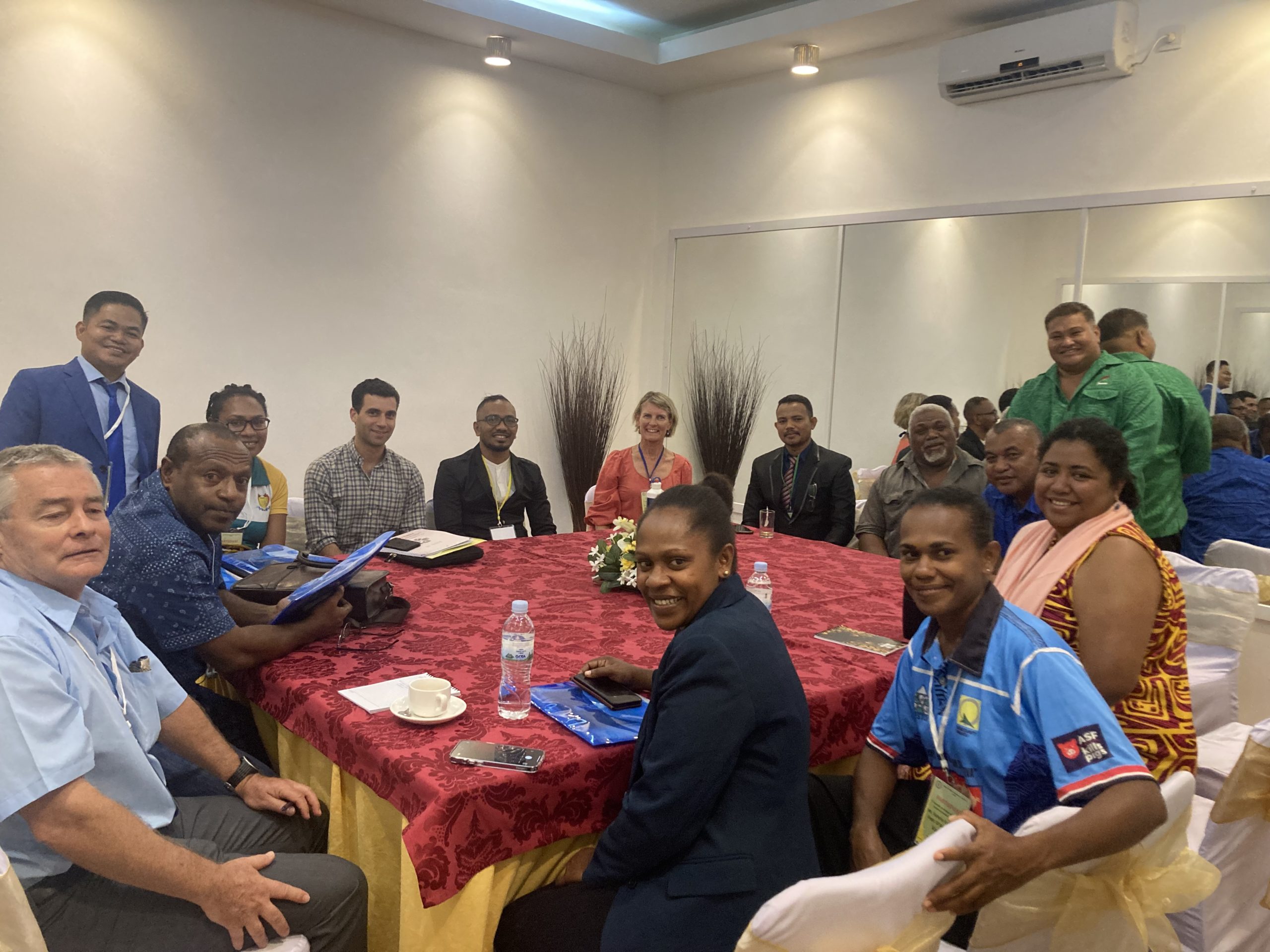

Working as a Team in Animal Disease Emergencies
June 5, 2023

The Crawford Fund’s Victoria Committee recently supported the attendance of delegates from Indonesia, PNG, Vanuatu, Fiji, Solomons, West Timor to attend the inaugural scientific meeting of the Timor Leste Veterinary Medical Association in Dili, Timor Leste. At the same event, the Fund’s NextGen program assisted with the attendance by two young vets, supported by the Department of Foreign Affairs and Trade and reported here.
The three-day conference involved 100 delegates from seven nations. The first day focused on current experience and progress in animal health in the various invited countries. A central feature of the presentations of the second day was based on experience gained in Timor Leste during its successful fight against African Swine Fever (ASF). During the third day, workshops were run by Australian and Timorese staff on pig nutrition using materials available locally, laboratory diagnostics using molecular techniques suited to the region, and application of field epidemiology principles to disease control at farm, district and national scale.
In 2019, Timor Leste became the 11th Asian country to report an outbreak of the emergency animal disease (EAD) ASF. In the two months it took local authorities to diagnose ASF, eight to nine incubation periods had passed, seeing an estimated 158,000 pigs, a quarter of the country’s pig population, wiped out by the disease.

Professor Grant Rawlin, Research Leader, Veterinary Pathobiology, Agriculture Research Victoria and his colleagues Dr Dianne Phillips and Dr Peter Mee travelled to the Timor Leste to support local scientists, technicians, farmers and animal health workers’ emergency response and to help safeguard Australia from EADs.
The Australian team spent a month practising biosecurity ‘in battlefield’ epidemiology, training local veterinarians on how to use a range of diagnostic tools, including qPCR testing – a real-time method for detecting different microbial agents in animal samples, and LAMP investigations – a highly specific, low cost, fast and portable test for pathogenic viruses.
Grant said the trust built between both parties had laid a solid foundation, without which the program would not be the success it is today.
“We operated on trust … if you fight together, it ensures trust and understanding; working as a team during the first outbreak instilled trust and understanding,” he said.
“The interface with our Pacific neighbours bolstered the response efforts and deepened our relationship with the Timorese. It also provided our experts access to these diseases not present in Australia, providing invaluable insight into on-the-ground emergency animal disease management and control,” said Grant.

Despite COVID-19 lockdowns and border closures, the Timorese and Australian teams continued to work together online to diagnose and track subsequent outbreaks using basic technology like WhatsApp and EpiCollect to communicate.
Over the three years since the first emergency response, Timor Leste has successfully diagnosed and controlled several outbreaks within 48 hours leading to esteemed recognition of the pilot program funded by the Department of Foreign Affairs and Trade (DFAT).
The Timor Leste Veterinary Association Conference was an opportunity to celebrate the program’s success and look forward to expanding the scope of the project targeting EADs such as ASF, classical swine fever, foot-and-mouth disease and lumpy skin disease to include testing of all species,” said Grant.
At the conference dinner attended by the Australian Ambassador and the President of Timor Leste, a further $4.7 million investment by Australia in supporting animal health and biosecurity systems of Timor Leste was announced.
Grant said that the program has been the pinnacle of his career and provided an incredible opportunity to use many of the tools he has heard of but never had the chance to use.
“We’re very excited to welcome Timorese scientists to AgriBio later this year and to continue to explore the possibility of duplicating the program elsewhere,” he concluded.

Key outcomes from the training initiative include:
- Creation of an international focus on animal disease biosecurity in Australia’s immediate north.
- Creation of a network of animal health professionals to Australia’s immediate north.
- Disseminating the lessons of fighting ASF in Timor Leste and the application of animal service co-ordination and technologies to detect and defeat a livestock disease outbreak.
- Printing of a conference proceedings.




 0
0